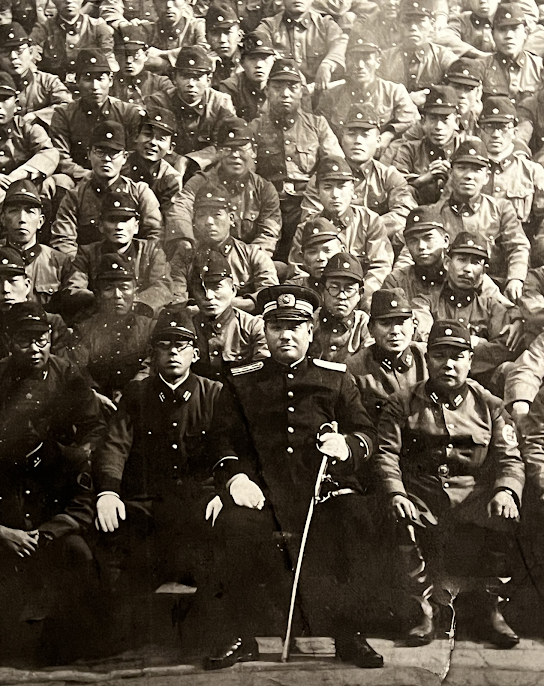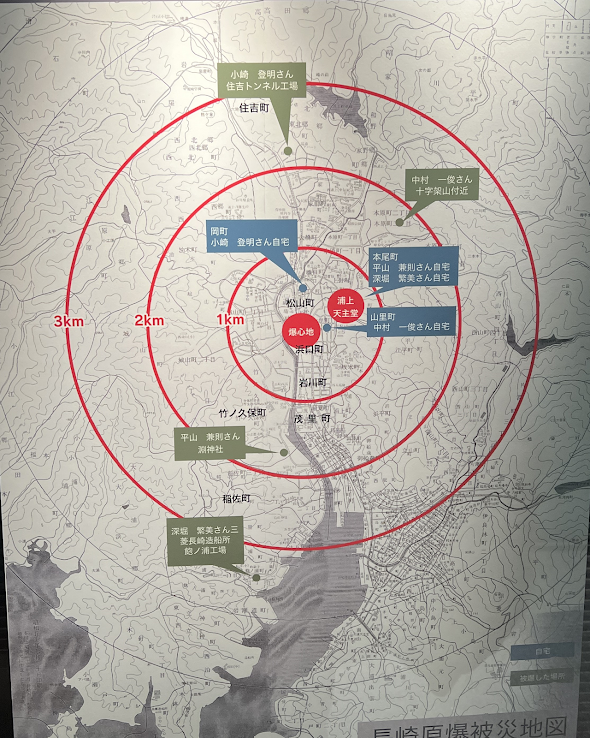Travel blog # 10 - Hiroshima and Nagasaki
Note: The below photos are a blend of pictures displayed in both the Hiroshima and Nagasaki museums. There were distinct differences between them.
Hiroshima displayed (in part) plenty of gruesome pictures: Corpses as well as horribly scarred and maimed people.
The displays at Nagasaki were more historical (with explanations why the war started) and technical in nature such as what makes up an atomic bomb.
Still, however, the message was very clear: War is bad!
We decided not to show a lot of dead people. The destruction photos are enough to give everyone an idea as to the bomb's effect.
Japanese soldiers looking forward to "getting into the fight"
Aerial view before the bomb is dropped
The bomb explodes
Within seconds, nothing...
Ground zero!
This shows the magnitude of the bomb's destruction
The dome and building: Before
The dome and building: After the bomb explodes 
The only remaining portion of a building
Time and the living stopped at...


Words are not necessary

And the weapons we have today are more powerful...


A traumatized woman stares at what was...


Much like "shoes" from the holocaust victims seen in the Museum of Tolerance, these clothes are from children killed by the bomb


The power and force of the bomb
A melted glass bottle

Plenty of personal stories
Behind the tree is a large mound. Of the +/- 150,000 killed from the Hiroshima blast, 70,000 are buried in the mound Hiroshima Peace Museum
The water symbolizes streams and ponds. People rushed to immerse themselves in the water to find relief from the blast. Under the arch is a flame that continually burns
The flame will continue to burn until war, weapons and atomic bombs are no more
A stead stream of people praying for peace Children of all ages come to both museums. The purpose is to educate what had occurred and lessons to be learned. While touring a museum, there was free time for the children to write about what they saw and learned. Plenty of peace-related memorial statues as well as one showing the little girl that tried to make 1000 origami cranes before she died. A movie, book and play were written about this young girl Visitors purchase origami strands
Individual origami cranes are placed throughout the area
Another statue representing water, sky and peace Replica of the Nagasaki bomb Nagasaki Peace Park has a variety of art work provided by different countries Some submissions are disturbing
Nagasaki Peace Park has a variety of art work provided by different countries Some submissions are disturbingA survivor (three yeas old when the bomb dropped) talks about her relatives that were killed and what it was like growing up.
Elementary children were timid at first but ultimately smiled and waved at us. Observations: Culturally, Japanese children are patient, polite, don't fool around and follow their teacher's directions without complaining.
New friends practicing their English
We were told that there has been a misconception about the intent of the two museums. Apparently, both the Chinese and South Korean visitors felt that the museums were "glorifying" war whereas the intent was to show how bad war is and without "man" striving for peace, there will be a never-ending battle between "man!"









































No comments:
Post a Comment